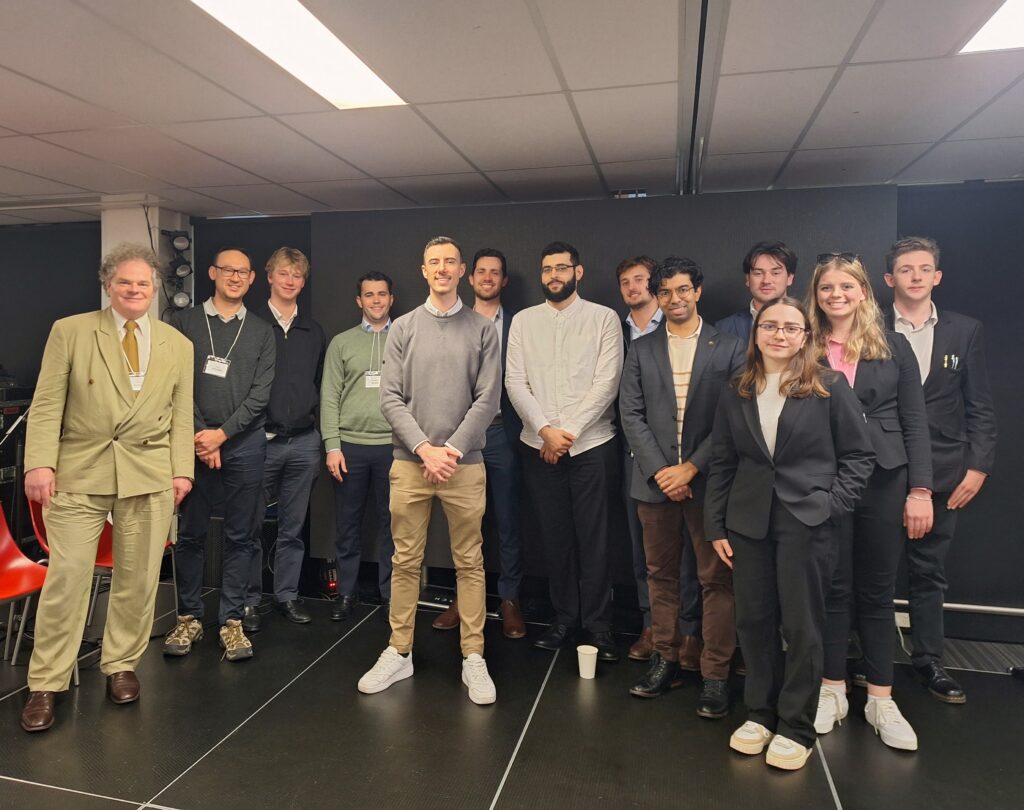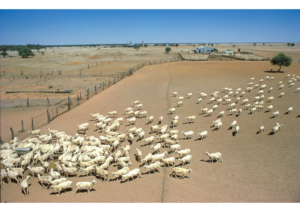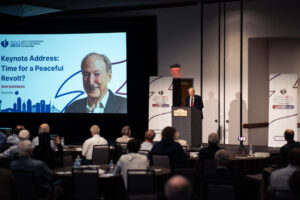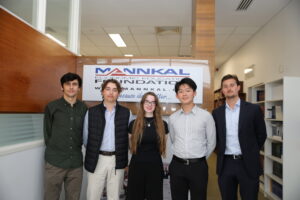The History of Economic Thought Society Australia (HETSA) Conference, held from 25-27 September 2024 in Parramatta, Sydney, was a remarkable experience. Sponsored by the Mannkal Economic Education Foundation, I had the privilege of attending and engaging with numerous scholars from diverse economic schools of thought. Despite the conference not being directly related to my field of environmental engineering and materials science, it offered me fresh perspectives on economics that I can apply both personally and professionally.
Among the various sessions, one that stood out to me was “Keynes, Policy and Environmental Crisis,” presented by Tony Aspromourgos from the University of Sydney [1]. This session examined the relevance of Keynesian economics in addressing modern environmental challenges. Aspromourgos explored Keynes’ understanding of the interplay between nature and economic activity, though he argued that Keynes did not advocate for environmental sustainability in the way it is understood today. Despite this, the session highlighted how Keynesian principles can inform current environmental policies, offering a unique blend of classical economic theory and modern challenges.
A particularly engaging moment for me came when I posed a question to Aspromourgos in Q&A about whether Keynes, who advised the state to remain ‘stationary’ (i.e. artificially prevent economic growth) to prevent the proliferation of environmental pollution, had considered innovation through the use of industry by-products as a means to mitigate environmental crises. I cited Western Australia’s world-famous Kwinana Industrial Area (KIA) which industrialists from around the world visit for its “industrial ecology/symbiosis” practice in which neighbouring industries exchange industry by-products (or “wastes”) to be used as cheaper raw materials. From this, I emphasised the fact that industry in its production of by-products should not be considered just a blight on the environment or a means for an absurd artificial restriction of economic growth, but an enabler of circular economy opportunities that spur innovation, helping the environment and wider economy. I ended my question noting that this industrial ecology can only (to my knowledge) be strongly driven in a free-market system that promotes entrepreneurial innovation. His response, while noting that Keynes had not explicitly addressed this, pointed me toward a text by Marx [2] that highlights the use of industrial waste in the chemical industry.
This interaction left a lasting impression on me, as it showed how economic theories1 can be directly applied to modern industrial practices involving industry by-product proliferation. This is something I hadn’t come across previously in my readings but directly applies to my own work in the environmental engineering and materials science space where I’m always looking into industry by product utilisation. Moreover, the Marxist text detailing the re-utilising waste products tied in well with my business, which focuses on the environmental and economic benefits of such practices and is most profitable when the prices of raw materials skyrocket as they become more scarce; good news for innovators in this space!
The conference wasn’t just an academic exercise; it was also an opportunity for dynamic debates. During a dinner conversation with Dennis Venter,2 Chenxi Gao from Kyushu Sangyo University, and Jianwen Tang from Hitotsubashi University, we delved into discussions about free trade, price controls, and government systems. This lively exchange underscored how deeply economics is intertwined with real-world decisions and governance, and I was particularly struck by how much I’ve absorbed through Mannkal’s teachings and from my own independent study, especially on free market principles.

The debates were invigorating, and I was surprised by how well I articulated my thoughts, especially when discussing the absurdity of price controls in the housing market. I even managed to sway one of my colleagues, a Chinese Marxist,3 to reconsider his stance on this issue. These discussions4 underscored the value of open dialogue and debate, which foster intellectual growth and challenge preconceptions.5
Attending the HETSA conference has broadened my understanding of economic thought and demonstrated the relevance of these theories to my own professional and personal endeavours. I look forward to applying what I’ve learned, especially in areas such as industrial innovation, business negotiation (i.e. really understanding people’s drivers, wants and needs) and collaboration to make a tangible impact in the future. This is my dream, and I’ll do anything I can to achieve it. I am sincerely grateful to Mannkal for providing me the opportunity in learning about economic theory which, like my science, business and engineering skills, is just another set of tools I can use in achieving my dream.
Footnotes and References
- Whether it was my introduction to economics as a field through the Austrian lens via Mannkal – of which, admittedly perhaps I haven’t read enough of the ‘other side’, (but that’s my fault and not Mannkal’s) – or perhaps my family history in Europe and reading of history, both of which heavily skews my views against Marx’s (or, more notably, his radical subsidiaries), I followed up and read the Marx text. ↩︎
- Another presentation that resonated with me was “Early Evolutionary Institutionalists and Quest for Better Agent-Based Models,” by Dennis Venter [3], also from the University of Sydney. Venter critiqued the current use of agent-based models (ABMs) in economics, especially in understanding social complexity. Drawing from early institutionalists like Veblen and Keynes, he argued that current ABMs fail to adequately model the nuanced behavior of economic agents, offering instead preliminary recommendations for improvement. The technical aspects of the discussion were fascinating, particularly as they paralleled some of the challenges I encounter in engineering research, where accurate models are vital to predicting outcomes. Comparatively, Newton’s Law of gravitational attraction between two masses is far more idealistic and simpler compared to economic models criticised by Venter, only a small set of simultaneous equations is needed to make a good estimate in the former case! ↩︎
- What an unbelievable descriptor for someone in this day in age… do we all read the same history books? Evidently not… ↩︎
- An interesting part of the discussion here from our conversation at dinner was a very exciting debate where he’d criticise ‘the west’s’ government terms of several years which always prevents consistent growth and I, although partially agreeing, asserted that this system was infinitely better than an autocratic system with no checks on power and enabling dictatorships that always hurt the people through economic means and vicious ideologies. We continued to talk about free trade, price controls (especially with the housing situation in Australia) and I surprised myself with my eloquence and how much I learned through Mannkal. I felt that the debate was invigorating and well-spoken from both sides. It was all in good faith, and as a joke at the end of it they were all satirically calling me “Marx” by the end of it due to my detesting of his ideology (aside from the industry by-product use mentioned previously). ↩︎
- We talked about the corrupt media, both in Asia and the West, and how much we may all potentially be “in the dark” with regards to truth. This was quite sobering and depressing, they talked about COVID conspiracies from the Chinese perspective which was very interesting. Whatever the case, where I represented mostly (but not entirely) the Australian economic scholars, and the others (mostly) represented the Marxist ones; one thing was evidently true between both schools in the past and at that dinner table: The people representing the Austrian school were dressed better than the Marxists! ↩︎
[1] T. Aspromourgos, “Keynes, Policy and Environmental Crisis,” in History of Economic Thought Society Australia 2024, Sydney, Australia, 2024.
[2] K. Marx, “Utilisation Of The Excretions Of Production,” in Capital: a Critique of Political Economy, vol. 3, F. Engels, Ed., International Publishers, 1894, pp. 101-103.
[3] D. Venter, “EARLY EVOLUTIONARY INSTITUTIONALISTS AND THE QUEST FOR BETTER AGENT-BASED MODELS,” in History of Economic Thought Society Australia 2024, Sydney, Australia, 2024.






